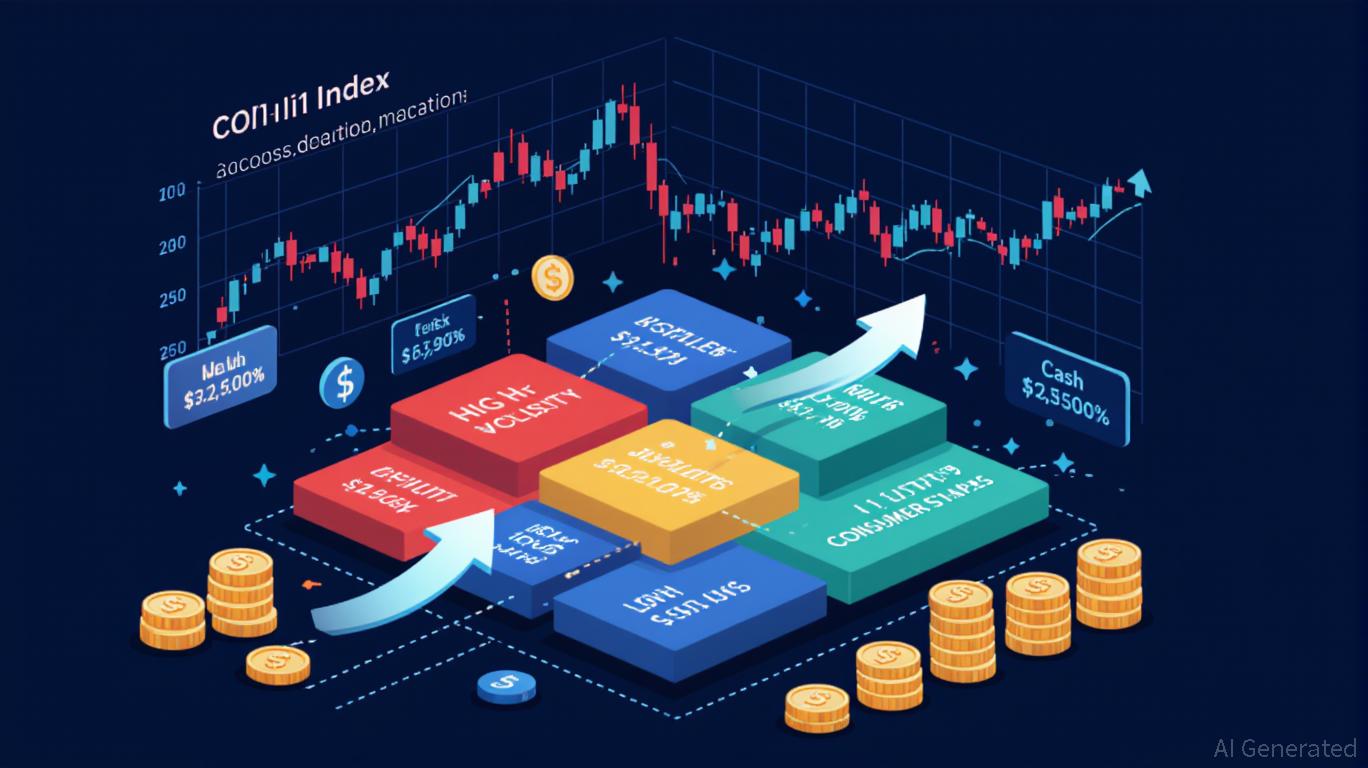Australia Sets Sights on Global Crypto Leadership Through Tougher New Rules
- Australia introduces strict crypto regulations, requiring platforms to obtain AFSL licenses under new legislation. - Non-compliant platforms face fines up to AUD 16.5M or 10% of annual turnover, with exemptions for small operators. - Industry leaders praise the framework for boosting trust, aligning with global trends like EU’s MiCA. - Regulations aim to prevent risks akin to FTX collapse, positioning Australia as a digital asset leader in Asia-Pacific. - Public consultation ends October 24, 2025, with f

The Australian government has introduced an extensive set of regulations for digital asset platforms, signaling a significant move to bring crypto exchanges under the same regulatory umbrella as conventional financial services. The draft law, published on September 25, 2025, requires all crypto service providers in Australia to secure an Australian Financial Services Licence (AFSL) as stipulated by the Corporations Act title1 [ 1 ]. This initiative is intended to strengthen consumer protections, combat money laundering, and mitigate systemic risks, while also encouraging sector innovation.
According to the proposed framework, platforms that fail to comply could face hefty sanctions, including fines reaching AUD 16.5 million or 10% of their yearly revenue, whichever amount is higher title1 [ 1 ]. These penalties target violations such as deceptive practices, inequitable contracts, or not conducting business “efficiently, honestly, and fairly” title1 [ 1 ]. Smaller providers—those managing less than AUD 5,000 per client or handling under AUD 10 million in yearly transactions—will be exempt, reflecting similar exclusions for traditional financial products title1 [ 1 ]. Assistant Treasurer Daniel Mulino highlighted that the new rules aim to “legitimise responsible operators and exclude bad actors,” providing certainty for businesses and reassurance for consumers title2 [ 2 ].
The draft law establishes two new categories for financial products: one for trading and custody, and another for asset protection. Platforms in these categories must meet licensing criteria, maintain minimum capital, and adhere to governance standards similar to those of established financial institutions. Oversight will be handled by the Australian Securities and Investments Commission (ASIC), with a particular focus on preventing failures like the FTX collapse in 2022. The legislation also covers stablecoins, granting exemptions to intermediaries distributing tokens such as AUDF, issued by Forte Securities Australia title1 [ 1 ].
The industry has largely welcomed the changes. John O’Loghlen, Asia-Pacific managing director at Coinbase, described the legislation as a “significant advance” for building trust and expansion, while Many Jiang of CloudTech Group called it a “landmark” for the industry title1 [ 1 ]. Both Kraken and Swyftx commended the regulations for promoting fair competition and enhancing investor trust. Nonetheless, there are ongoing worries that compliance expenses could hinder smaller startups.
On the international stage, Australia’s regulatory direction is consistent with measures adopted in regions such as the EU (MiCA), the UK, and Singapore, all of which have introduced comparable oversight. Andrew Charlton, Assistant Minister for the Digital Economy, stated that the reforms are designed to establish Australia as a “global leader in digital assets,” capitalizing on its position in the Asia-Pacific title1 [ 1 ]. The government is also considering broader exemptions for stablecoin intermediaries, including AUDF, to stimulate innovation while upholding regulatory safeguards title1 [ 1 ].
The public can submit feedback on the draft law until October 24, 2025, after which the government will make further revisions title1 [ 1 ]. The finalized legislation is anticipated in 2026, though enforcement dates are yet to be determined. The Treasury has stressed the importance of a balanced approach, aiming to encourage innovation without jeopardizing financial stability.
These proposed regulations are part of a wider international movement toward tighter crypto regulation, spurred by incidents like the FTX collapse and increasing worries about fraud and systemic threats. By integrating crypto platforms into existing financial regulations, Australia seeks to offer greater clarity for investors while maintaining its edge in the digital asset market.
Disclaimer: The content of this article solely reflects the author's opinion and does not represent the platform in any capacity. This article is not intended to serve as a reference for making investment decisions.
You may also like
Ethereum News Update: Ethereum Drives Institutional Transformation with Amundi Tokenizing Major Fund
- Amundi tokenizes a money market fund on Ethereum , signaling institutional adoption of blockchain-based asset management. - Ethereum's upgrades like PeerDAS and Bhutan's $970k ETH staking highlight growing institutional trust in its infrastructure. - CoinShares' $250M Bitcoin Miners ETF and global digital ID initiatives underscore tokenization's role in modernizing finance. - Ethereum's $3,100 price resistance and technical indicators suggest potential for long-term resilience amid scaling improvements.

Hyperliquid News Today: Hyperliquid Adopts Tidewater’s Strategy to Streamline Crypto Risk Management
- Hyperliquid introduces automated downsizing to stabilize HYPE, which dropped 52% from its peak. - Strategy mirrors Tidewater Renewables' capacity management, balancing short-term volatility with long-term stability. - Hyperliquid Strategies DAT plans $300M HYPE buybacks to inject liquidity and institutional-grade risk frameworks. - Market faces $1.89B+ liquidation risks if Bitcoin/Ethereum surge, prompting automated buffers to prevent cascading sell-offs. - Approach reflects growing DeFi adoption of algo
The Unexpected COAI Price Decline: Key Lessons for Investors from the November 2025 Market Turbulence
- COAI Index's 88% November 2025 collapse stemmed from C3.ai governance failures, regulatory ambiguity, and panic-driven herd behavior. - Market psychology amplified losses as investors overreacted to AI sector risks, ignoring fundamentals and triggering liquidity crises. - Diversification, cash reserves, and AI-driven tools helped mitigate risks, emphasizing long-term strategies over speculative hype. - The crisis exposed dangers of overreliance on AI/DeFi narratives, urging disciplined, diversified portf

CME Suspension: Global Market Vulnerabilities Revealed by Thermodynamic Constraints
- CME Group halted Globex trading on Nov 28, 2025 due to CyrusOne cooling system failure in Chicago, freezing 90% of global derivatives markets. - The outage caused erratic price swings in gold/silver and disrupted EBS forex platforms, exposing vulnerabilities in third-party data center reliance. - Despite post-holiday timing softening immediate impact, the incident highlighted systemic risks from thermodynamic limits in AI-era infrastructure. - CME faces pressure to build redundant systems as it expands c
